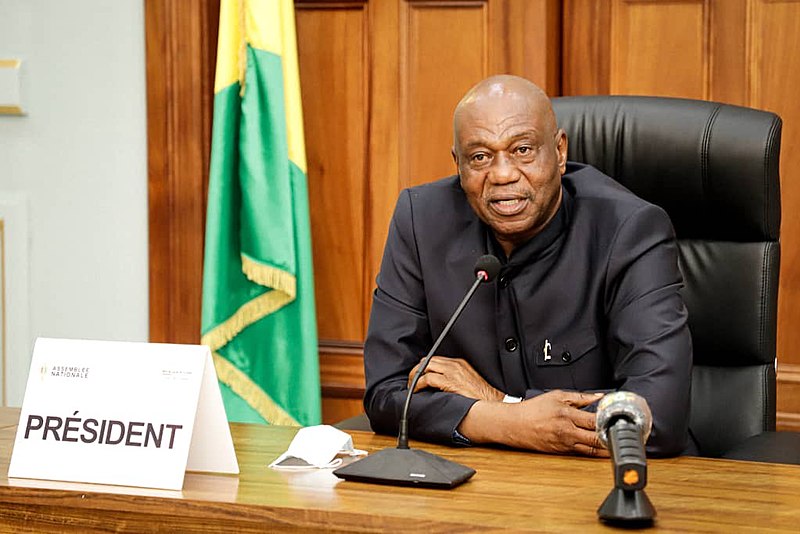
Amadou Damaro Camara, the former president of Guinea’s National Assembly under Alpha Condé, has been sentenced to four years in prison for corruption and embezzlement of public funds.
Your go-to source for in-depth coverage of political developments, economic trends, social affairs, and vibrant cultural stories from across the continent.

The ruling, handed down by the Court for the Repression of Economic and Financial Crimes (CRIEF), marks a significant step in the country’s anti-corruption drive but has drawn polarized reactions from the public.
After two years of legal proceedings, Camara was found guilty of mismanaging public funds and engaging in corrupt practices.
Alongside his prison sentence, the court imposed a fine of 5 billion Guinean francs, underscoring the gravity of the offenses.
The CRIEF’s verdict aligns with the current administration’s pledge to fight financial crimes, but it has also sparked debates about judicial impartiality in a politically charged environment.
The case extended beyond Camara to include other prominent figures.
Michel Kamano, the former treasurer of the National Assembly, was convicted in absentia, receiving a five-year prison sentence and a 4-billion-franc fine.
Kamano, who cited medical reasons for his absence, now faces an international arrest warrant.
Meanwhile, Jin Sun Cheng, a Chinese businessman implicated in the case, was handed a lighter sentence.
Found guilty of corruption, he received a one-year suspended prison term and a fine of 10 million Guinean francs.
Prosecutor Aly Touré expressed satisfaction with the court’s decision, emphasizing its significance in combating public-sector mismanagement.
“This ruling sends a strong message that corruption will not be tolerated,” he said.
However, Camara’s legal team sharply criticized the judgment.
“This is an unfair decision, and we will appeal,” stated defense lawyer Me Lancéi Doumbouya.
The high-profile trial has reignited discussions about the intersection of justice and politics in Guinea.
While some applaud the CRIEF’s resolve to address corruption, others view the case as a politically motivated effort to discredit figures from the previous regime.
This contentious verdict adds to the growing tension in a nation striving for political stability and judicial credibility.
I am an avid African news observer, and an active member of Daily Mail Africa.
I’m Passionate about staying informed on diverse topics across the continent,
I actively contribute to publishing on political, economic and cultural developments in Africa.